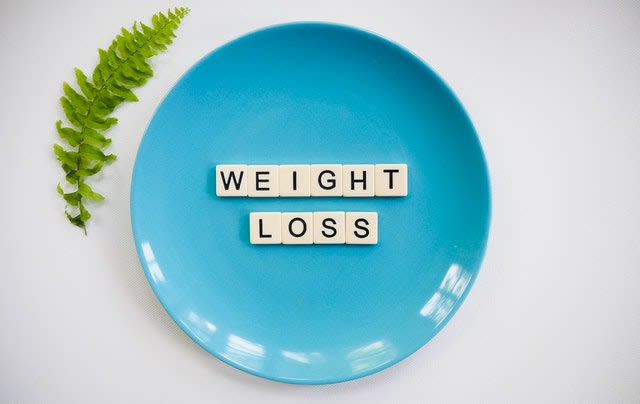What is medical weight loss and is it right for you?
Published: January 15, 2023l
Debra Smith, pictured above, lost weight with Stamford Health's medical weight-loss program.
For many people, talking about their weight with anyone is not easy. Even with their doctors.
Most people who see me, the medical director of Stamford Health's Center for Weight Management, have struggled for years to lose weight. They've tried every kind of diet, every type of exercise. Some have taken medications (both over-the-counter and prescription). Some have even had weight-loss surgery. They're frustrated.
When people come to me for the first consultation, I know what they've heard people say about their weight.
Some statements are true:
- Extra weight is not good for your health. It increases the risk of Type 2 diabetes, high blood pressure, high cholesterol, heart disease, fatty liver, osteoarthritis, and even cancer.
- Losing the extra weight will result in you being healthier and needing less medication.
And some are not true:
- If you just tried harder, ate less, and exercised more, you'd lose weight. After all, "calories in, calories out."
- There are no safe and effective medications: All "diet pills" don't work and are dangerous.
Why it's so difficult to lose weight and keep it off?
Physicians, like me, who study the science of what regulates weight know that it's not that simple. It's so important that we share this knowledge with people — why excess weight is important to address, why it's so difficult to tackle, and what are safe and effective options to help.
The first time I met with a woman in her 60s, I discussed her weight and weight history without judgment. When she was in her 50s, she was 350 pounds and decided to have gastric bypass surgery. A year later, she was 180 pounds. But over the next 10 years, she regained significant weight. At our first meeting, she was 242 pounds. At that point, she was on four blood pressure medications and she, her primary care doctor, and cardiologist knew it was imperative she lose weight.
I asked about her weight, health, and personal goals. Like many, she had a number goal in mind, but she also described wanting to be able to keep up with children and grandchildren, to be on fewer medications, and to feel like herself again.
I explained to her why it has been so incredibly difficult for her and many others to lose weight and keep it off. We now know our bodies, to a large extent, are programmed to hold onto weight. This mechanism is both primitive (how our ancestors were able to survive during famine) and powerful (like how the gut-brain connection regulates weight).
How do I know if medical weight loss is right for me?
I've seen hundreds of patients and guided them through their weight-loss journeys. Our medical weight-loss program starts with a review of a person's weight and medical history, medications, and then recommends a comprehensive hormonal workup.
I discuss your weight history (your highest and lowest weight, when did weight started rising, what interventions were effective/not effective) and daily life (how much and quality of sleep, meal and snack patterns, exercise, work schedule, etc.).
Laboratory evaluation includes:
- Measure cholesterol and sugar levels, as well as liver and kidney function.
- Screen for weight-related illnesses (fatty liver disease, cardiovascular disease, high blood pressure, or diabetes) as well as inflammation, all common in people with excess weight.
- Rule out rare causes of excessive and rapid weight gain, like Cushing's Disease.
- Look for typical causes of weight gain, like thyroid malfunction or insulin resistance.
My patient's lab evaluation showed blood sugars at least in the pre-diabetes range, elevated cholesterol, and elevated inflammatory markers. Both her labs and history pointed to her being a good candidate for medical weight loss.
What medical weight loss treatment options are available?
Every evaluation is followed up with personalized recommendations. I always reinforce the importance of nutrition, healthy exercise, good sleep, and stress reduction.
I discuss the options for weight-loss medications — which have come a long way from the "diet pills" of the past. In particular, the medication I prescribed for my patient above is of a medication family that has not only been shown to be effective for weight loss, but also aids with lowering blood sugar, improves blood pressure, kidney, and liver function, as well as reduces the risk of cardiovascular events.
When appropriate, I prescribe combination therapy with other safe and effective medications and/or provide information on our meal replacement program.
What I emphasize in these recommendations is that they are tailored to them as individuals, and that the interventions are effective, safe, and will give them a chance at long-lasting weight loss and health.
How much weight can I expect to lose from medical weight loss?
How aggressive a program you need depends on your weight-loss goal and whether you have any weight-related health problems. For example, needing to lose 20-30 pounds calls for a less aggressive program than needing to lose 100 pounds while also suffering with knee pain, acid reflux, or other health issues.
How soon can I expect to see results from medical weight loss?
Within 12 weeks of starting the program, you should start seeing results. In addition to weight loss, decreases in blood sugar and inflammatory markers, and reduced need for blood pressure medications, indicate that the program is working. Every 8-12 weeks, and sometimes more frequently, you'll check in with a clinical member of your weight-loss team.
Back to my wonderful patient. At her last visit, she had lost 100 pounds in total, her body mass index decreased from 49 (obese range) to 24 (normal), and she lost over 10 inches from her waist size. Her blood sugar and inflammatory markers are normal, her cholesterol improved, and she is on less blood pressure medications. Most importantly, she feels amazing!
Losing weight and maintaining healthy weight loss is a long-term endeavor, and every person's journey is different. With the appropriate evaluation and plan, and a trusted and expert medical team at your side, losing weight and being healthier is achievable.
About the Author
Maria Cecilia Asnis, MD, FACE, DABOM, is the Medical Director – Center for Weight Management at Stamford Health.
Featured Expert/ Author

































































